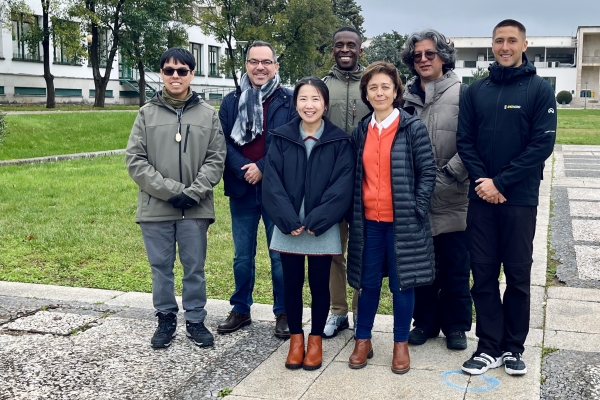As part of the CODECS project, a European consortium has launched around twenty living labs—collaborative innovation spaces—to study firsthand the barriers and motivations that various stakeholders in the agricultural sector face when transitioning to digital tools.
Europe’s agri-food sector is undergoing a dual transformation: digital and green. The dramatic population growth of the last century, combined with the effects of climate change, has made meeting the demand for food increasingly challenging.
“All land suitable for farming is already in production,” explains María del Mar Delgado Serrano, a researcher in the Department of Agricultural Economics, Finance, and Accounting at the University of Córdoba and participant in the CODECS project. “Any additional land we gain comes at the expense of the environment,” she notes. “If we want to do this sustainably, we don’t have more land to use.”
This reality is pushing the sector to adopt new strategies to meet demand without causing significant environmental harm—many of which involve the use of digital technology. Examples include sensors that reduce water or fertilizer use, or satellite and drone imagery for crop monitoring.
However, there is a gap between the new, fast-evolving technologies and the farmers who must adopt them—many of whom lack the resources or training to implement them effectively.
To address this issue, the University of Córdoba team has analyzed which institutions and companies act as intermediaries between farmers and new technologies, and the difficulties they face in bringing innovation to the field.
Additionally, the research group has studied the digitalization policy landscape across 18 countries to provide the European Commission with a roadmap outlining the policies the agricultural sector needs to make a successful digital transition.
Interoperability, Data Protection, and Digital Skills Are Key to the Digital Transition
According to the study, one of the main barriers to agricultural digitalization is the lack of interoperability—the ability of one technology to communicate with another. It is common for companies that sell sensors or machinery to design products with closed, proprietary systems that are only compatible with their own devices.
This dependency forces many farmers to purchase new equipment rather than upgrade existing machinery at a lower cost.
A bigger challenge is the disconnect between agricultural realities—where the average farmer is nearly 60 years old and often lacks digital skills—and the strategies designed to promote digital transformation, which frequently require advanced technical knowledge.
“Half of the farmers don’t even own a computer,” says Delgado Serrano. Yet “to receive payments under the Common Agricultural Policy (CAP), farmers must keep a digital log detailing every task,” she explains. “It’s a radical shift in how they operate.”
Training is also an issue. Existing programs are often theoretical and delivered in universities or training centers, which are far less effective than hands-on learning in the field (demo-farms) where farmers can see the technology in action.
Another concern is data ownership. Digital technologies collect valuable data for the market. “The tractor is sending information to the manufacturer about soil type, compaction, fuel usage, etc.,” Delgado Serrano explains. “Who owns that data?” she asks. “There’s a lack of information and transparency about what is being done with it.”
Moreover, data is only useful if there are resources to analyze it and the expertise to make decisions that enhance farm competitiveness (Decision Support Systems). This is creating a divide between businesses that can afford to hire data professionals and those that cannot.
For Delgado Serrano, the solution lies in agricultural administrations or the European Commission—who funds the project—facilitating access to these data, so the entire sector can benefit.
The goal now is to turn these findings into practical proposals that align digitalization efforts with the real needs of the agricultural sector and prevent innovation from remaining on the margins. To that end, the University of Córdoba and the rest of the CODECS consortium will continue working alongside the key players involved in this transition.
This report is included in the activities carried out in the project "Desarrollo de redes de asesoramiento y gestión de proyectos europeos I+D+i en la UCO" with acronym "DevelOPE", within the framework of grant GPE2023-001243-P financed by MICIU/AEI/10.13039/50110001103.


